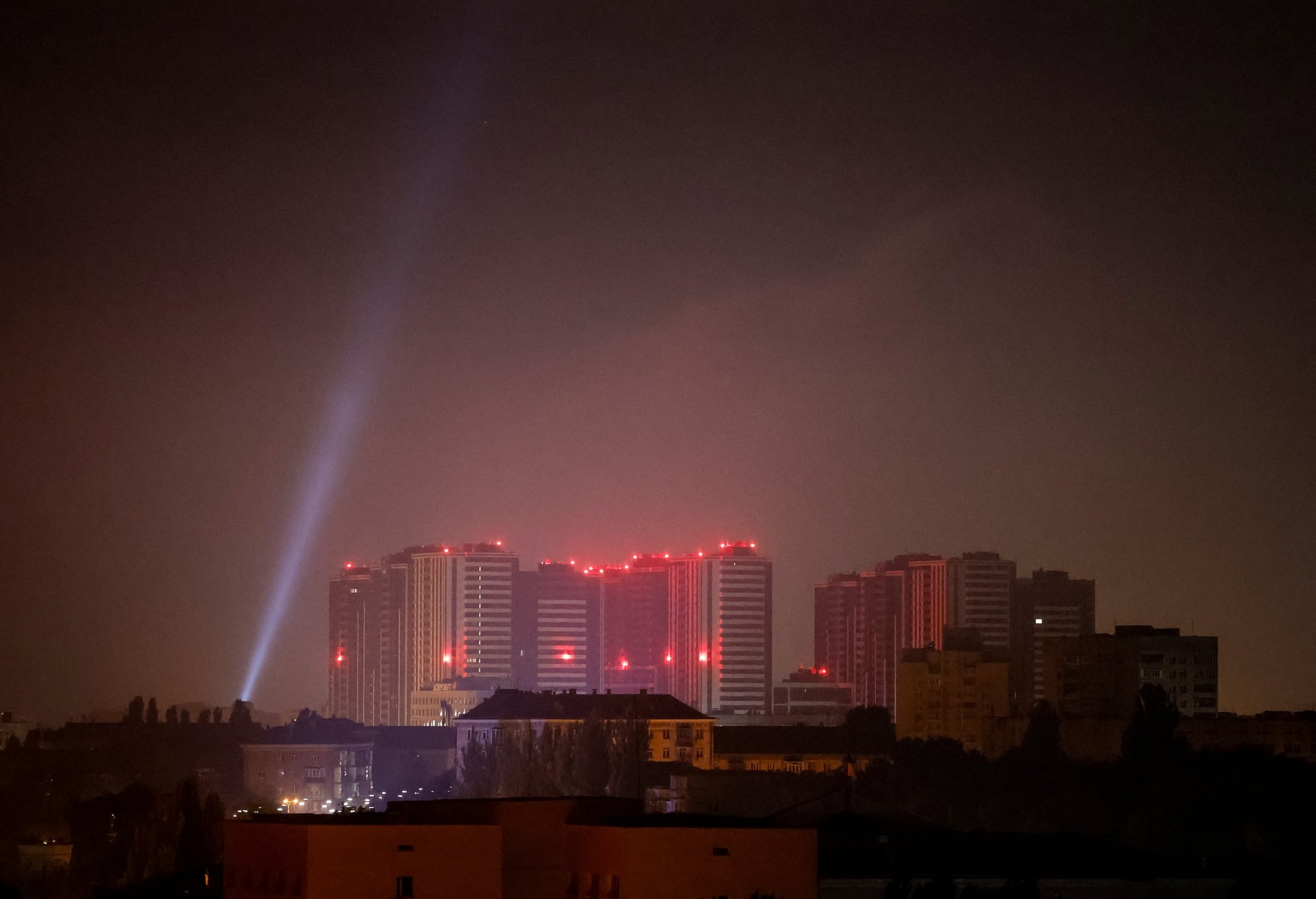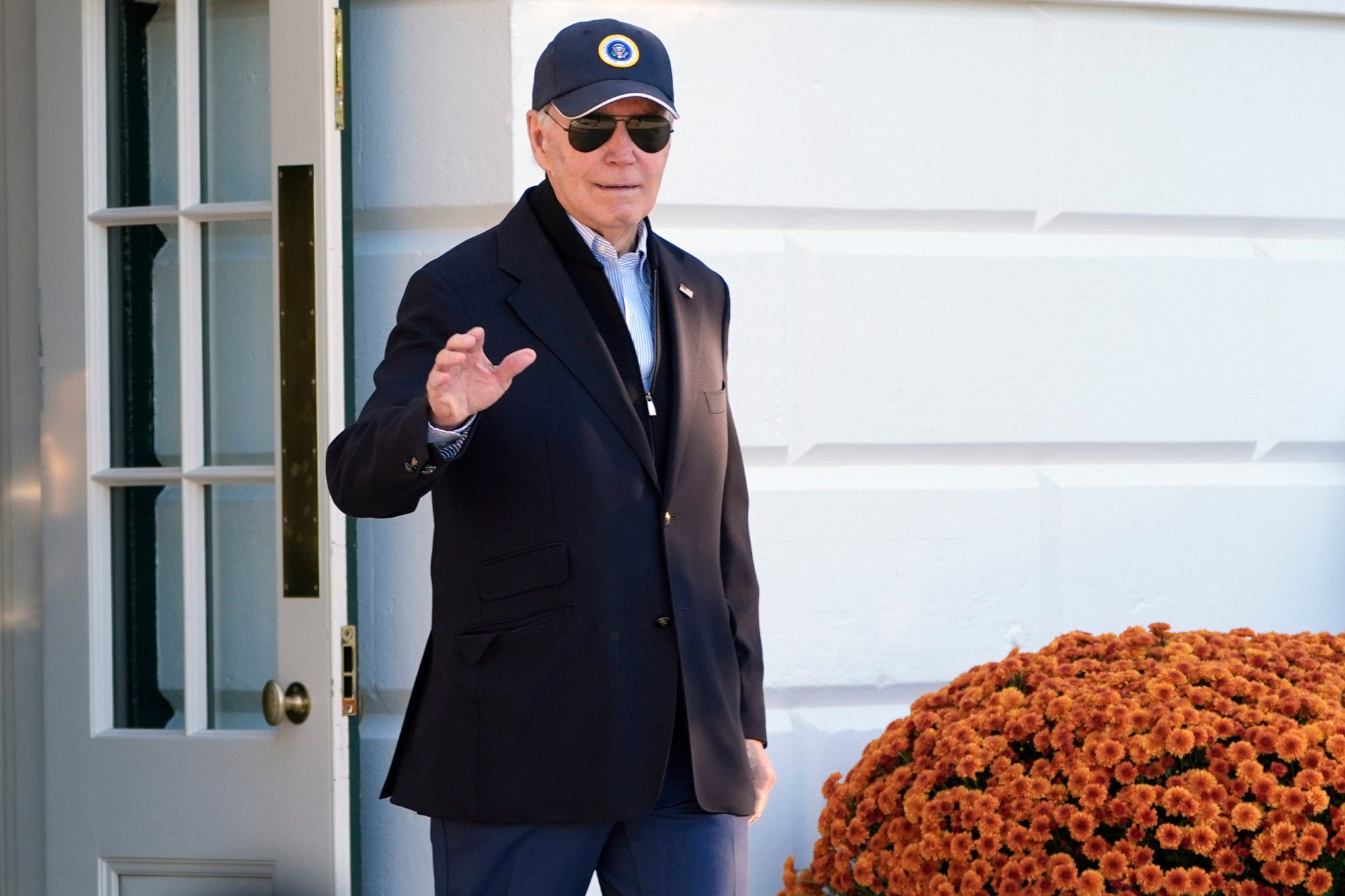The United States is sanctioning two Chinese companies it says are cooperating with Russian entities to design, build and ship long-range attack drones, in the latest round of punitive action against firms supporting Russia’s war against Ukraine.
A senior official in US President Joe Biden’s administration said on Thursday that the weapons – part of Russia’s Garpiya series of long-range combat unmanned aerial vehicles (UAVs) – are jointly designed with a sanctioned Russian entity, produced in China and shipped directly to Russia.
While the US has previously sanctioned Chinese firms for providing components for Russia’s military-industrial base, these are the first sanctions against Chinese entities “directly developing and producing” weapons systems with Russian firms, according to the US Treasury Department.
Do you have questions about the biggest topics and trends from around the world? Get the answers with SCMP Knowledge, our new platform of curated content with explainers, FAQs, analyses and infographics brought to you by our award-winning team.
The first Chinese entity targeted by the Treasury Department is Xiamen Limbach Aircraft Engine, which the US says is responsible for producing an engine placed in the UAVs before they are shipped out of China.
The second company, Redlepus Vector Industry Shenzhen, was accused of working with Russian defence firm TSK Vektor to facilitate the supply of drones to Russia.

TSK Vektor was among the Russian companies sanctioned by the Treasury Department last December for assisting with procurement on behalf of major Russian anti-aircraft equipment makers in the development and production of one-way attack UAVs.
The US also announced sanctions against Artem Mikhailovich Yamshchikov, the owner of TSK Vektor, along with the Russian firm TD Vector, which is also owned by Yamshchikov.
Washington and its allies have increasingly expressed concern over signs of closeness between Russia and China and Beijing’s support of Russia’s war in Ukraine.
The US has in recent months imposed sanctions on hundreds of entities and individuals for supporting Russia’s war in Ukraine, including Chinese companies that it says is helping Moscow skirt sanctions.
It has also added Chinese entities to an export control list that forces suppliers to obtain licences before shipping to targeted companies.
The latest round of sanctions were announced as Biden begins a trip to Berlin, where he will meet with German Chancellor Olaf Scholz.
According to a senior administration official, Biden is also expected to have a meeting that will include leaders from France, Britain and Germany, and support for Ukraine will be a major focus of the four-way discussions.
Beijing has said its trade with Russia is based on “equality and mutual benefit” and rejected what it called “unilateral sanctions and long-arm jurisdiction that are not authorised by the United Nations”.

It also denies that it is supplying Russia with arms to use in Ukraine, asserting that it maintains an “impartial position” on the war.
Responding to Thursday’s development, Liu Pengyu, spokesman for the Chinese embassy in Washington, said that the US was making “false accusations against China’s normal trade with Russia” and that China would “continue to commit to uphold the lawful and legitimate rights and interests of Chinese businesses”.
Just before Russia’s invasion of Ukraine in February 2022, China and Russia announced a “no limits” friendship, though more recent signs indicate that Beijing is trying to strike a delicate balance in its diplomacy between the Kremlin and the West.
Neither a joint statement in March 2023 between China and Russia nor their most recent one in May used the phrase “no limits” to describe the relationship.
In the statement from May, Beijing and Moscow agreed to expand their joint drills; conduct regular joint maritime and air patrols; and work together on space programmes.
In a meeting on the sidelines of the Shanghai Cooperation Organisation summit in Islamabad, Pakistan, on Wednesday, Chinese Premier Li Qiang told his Russian counterpart Mikhail Mishustin that China was willing to further deepen cooperation in trade and jointly upgrade supply chain coordination.
President Xi Jinping is expected to visit Russia this month for a summit of the Brics bloc of emerging economies in Kazan hosted by Vladimir Putin.
More from South China Morning Post:
- US, EU raise alarm over China’s ‘very substantial’ support for Russia in Ukraine war
- China’s support for Russia ‘very troubling’, says US ambassador as anniversary of Ukraine war looms
For the latest news from the South China Morning Post download our mobile app. Copyright 2024.





